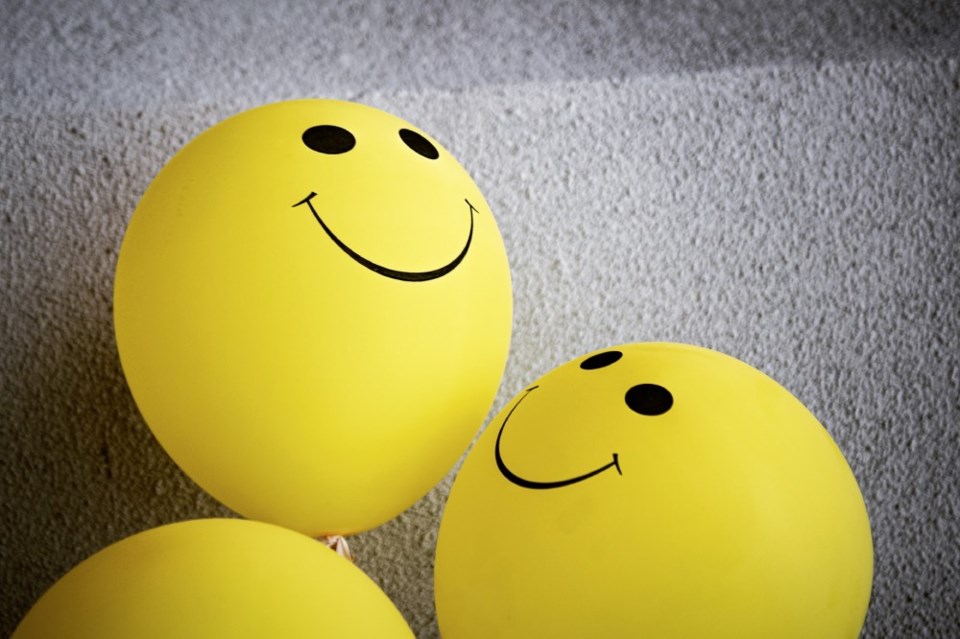The word ‘happiness’ in the popular internet search site returns 5.6 trillion possible pages in 0.54 seconds. It seems to me that everyone wants to be happy but hardly anyone is. Now why is that so? Is it possible that we have a completely wrong conception of what constitutes happiness? I propose a way out by revisiting an idea that goes all the way back to the Buddha and Aristotle. As the historians say, we never seem to learn from history.
My proposition is quite simple. Just as health can be defined as the mere absence of disease, instead of associating happiness with more and more pleasures, can we redefine happiness as 'the absence of pain or discomfort'? Happiness would then be the default state for most of us most of the time, instead of the other way around. For a person in severe pain (think a cancer patient or someone with kidney stones), relief from the pain would not only seem like bliss, but actually is bliss. This is no gimmickry with words. Just observe babies. A baby is always happy except when in pain or discomfort.
Let me elaborate. Broadly speaking, pain can be physical or psychological. Physical pain and some types of psychological pain (mental disorders) are real and create true distress. However, many types of psychological pain are self-generated (fear of the future, envy, hate, competition, hurts, insults and guilt from the past) and hence are avoidable. If we consciously work towards avoiding or minimizing the sources of true pain, which is a goal that is within reach for many of us, then we can actually be happy most of the time.
The problem however is, most of us share this unquestioned belief that the pathway to happiness is a life full of pleasures. While we can agree on what constitutes pain and take steps to avoid it, pleasures vary from person to person and from place to place. While a simple meal could bring great pleasure to someone, a multi-course gourmet meal might not bring pleasure to another who is used to something better. Fulfilment of pleasures therefore is a never-ending, unattainable goal, whereas avoidance of pain is a much more reasonable and achievable goal. Pursuit of happiness through pleasures is akin to chasing a mirage for water, forever leaving us thirsty and drained.
Now why is the difference between the two approaches - pursuit of pleasures and avoidance of pain - so critical? If these two are not interrelated and if one can succeed in enjoying all the pleasures of world without incurring any pain, then this distinction probably wouldn’t matter. But alas, that is not the case. The fact is that pain, to a higher or lesser degree, always accompanies pleasure. We know very well the physical (and psychological) discomfort we face after a night of partying and the long term effects on health if we continue with such a lifestyle. How about the sublime pleasure (as one of my smoker friends describes) of smoking and its shadow of potential lung cancer? Most pleasures are sugarcoated poison pills. This is the logic behind the traditional wisdom to avoid extreme pleasures in favor of simple pleasures, as the latter involve minimal pain. Many desires, wants and goals (beyond our actual needs), which we mindlessly chase in our lives, have pain and stress associated with them related to their protection and sustenance. Worse, many pleasures are pursued for mere show-off as status symbols. It is the constant striving and struggle involved in achieving and leading a life full of pleasures that leads to misery and suffering. True joy is hardly found in expensive things; but rather in ordinary and unexpected stuff - a simple meal, the sight of a rainbow, a lilting tune, a child’s laughter or simply lounging around doing nothing in particular.
So, should we shun all pleasures and turn into ascetics? Not at all. My point is that we should learn to consciously put a price on all pleasures and evaluate whether each is worth the price. Many times, we may knowingly take up an activity that involves pain because it is simply the right thing to do. Consider the hard (and somewhat painful) effort involved in becoming proficient at a particular type of work or sport or an art form; or the more extreme example of fighting for a just cause or for the freedom of a country. The path to sustainable happiness is moderation - the middle way (as advocated by the Buddha) or the golden mean (Aristotle’s principle).
According to scientists, what distinguishes humans from all other species on earth is our ability to think and discriminate. Let’s use it.
Ravee Chittoor is an associate professor at the University of Victoria. The views he expresses are personal.
You can read more articles on our interfaith blog, Spiritually Speaking, HERE /blogs/spiritually-speaking



